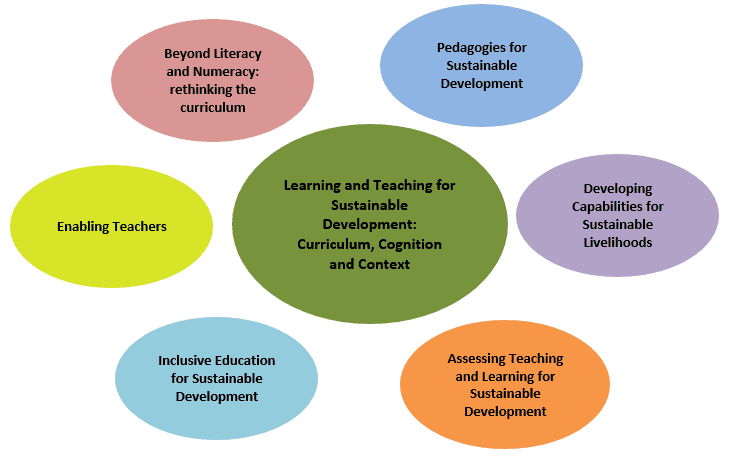This sub-theme is co-convened by
Paul Vare, University of Gloucestershire
Clare Bentall, IoE/ UCL
Literacy and numeracy are important but their primacy has led to a narrowing of the curriculum often in response to governments overly prioritising the results of international league tables such as the Programme for International Student Assessment (PISA). This sub-theme is concerned with our response to this phenomenon.
A narrowly focused curriculum is unlikely to prepare the next generation for a world of unforeseen challenges and rapid change. Globalisation, for example, may have raised living standards globally but gross inequalities within and between nations are corroding societies and communities. Meanwhile social inequality compounds environmental problems such as habitat loss, pollution, land degradation, ozone depletion and climate change, while making it harder to achieve peace. These issues are complex, non-linear and characterised by emergent phenomena. Termed ‘wicked’ problems, such intractable issues call for non-traditional, trans-disciplinary approaches to address them. Are such approaches reflected in school curricula? If we want to build resilience in young people, shouldn’t our curriculum be modelling the capacity for adaptation?
Re-thinking the curriculum presents its own challenges. What are the key learning outcomes we seek in different education and training contexts? Indeed, to what extent should a curriculum promote a precise set of pre-determined values and norms? Who should be involved in contributing to curriculum design and who or what should inform this? What is the role of the ‘local’ (and global) in such a curriculum?
We are keen to learn from those involved in the policy, philosophy and practice of curriculum development. In particular we welcome contributions that address the following areas:
- Are there approaches or models of curriculum development that would best help us to promote responsible participation and peaceful social evolution?
- Is it a menu of knowledge and skills that is required to promote sustainable development or something more emergent?
- What practical experience of implementing a curriculum for peace, global citizenship and sustainable development can we share?
- What research is there to help us develop such curricula?
- What next steps should be taken towards such a refocused curriculum and by whom?
Read Paul Vare's interview on the sub-theme
This sub-theme is co-convened by:
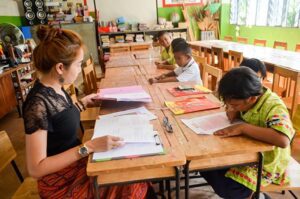
thiraphonthongaram / Shutterstock, Inc.
Unknown children in Academic Activities, Elementary School. Chumchon Watbandong School, Phitsanulok Thailand
Angeline Barrett, University of Bristol
Julia Paulson, University of Bristol
James Lawrie, Save the Children
Pedagogy makes the connection between teaching and learning and is therefore crucial for education’s contribution to sustainable development. In exploring pedagogy, we open questions about the starting place, lived experiences, power relations and agency of teachers and learners, the diverse learning environments encountered over the life course, and the interpretation of education policies into education practices. Within this sub-theme we seek to question and understand how the relationships and learning processes between teachers, learners, technologies, and policies come together to shape possibilities and challenges for education and sustainable development.
We welcome papers from researchers and practitioners that explore:
- the interface between pedagogy and education policy imperatives, including language policies, citizenship, peace-building, economic competitiveness and international league tables;
- how teachers might be empowered to improve pedagogic practice for diverse learners and in challenging contexts, including through curriculum frameworks, resources, preparation, support and supervision;
- the promise, potential and pitfalls of traditional and digital technologies for transforming pedagogies, particularly in schools serving disadvantaged communities;
- pedagogical approaches that promote sustainability, resilience, gender equality, human rights, democracy, peace and reconciliation;
- the promise of democratic, transformative, feminist and critical pedagogies, and the opportunities and challenges that educators and learners face in developing these;
- pedagogies for non-formal, informal, virtual, peer-to-peer, lifelong and adult education, and forcibly displaced communities;
- methodological approaches to researching pedagogy, including research that supports teachers’ and learners’ agency and the co-production of knowledge.
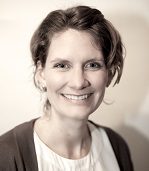 Julia Paulson has talked about what will be addressed by papers in this sub-theme
Julia Paulson has talked about what will be addressed by papers in this sub-theme
This sub-theme is co-convened by: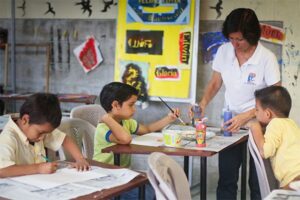
Nalini Boodhoo, University of East Anglia
Sharon Tao, Cambridge Education
This sub-theme encompasses a broad understanding of sustainable development, not only pertaining to the SDGs and notions of environmental sustainability, but also sustainable human and professional development for teachers, and sustainable policy and practice that affects them.
Specifically, we welcome contributions from researchers and practitioners which consider the meaning and complexities of sustainability in relation to: pre and in-service teacher education, curricula for teacher education programmes, teacher recruitment and retention, career progression, professionalism, teachers’ well-being, the management and deployment of teachers, teacher performance, teacher educators and their professional development, incentivisation and technology.
We welcome papers that offer insights on different personal, social, economic, cultural, geographical and educational contexts; as well contributions which address the following:
- What factors ensure that teacher education programmes can be sustained after funding, material resources and training are finished? Which programme designs, including new forms of partnership, and exit strategies are most sustainable?
- What new skills and knowledge do teachers need to deliver Education for Sustainable Development and how should teacher education approaches change to support teachers to develop these?
- What are the lived experiences of teachers/practitioners in meeting the challenges and pressures of bringing about sustainable change?
- What factors and systems facilitate teachers' sustained application of new knowledge, skills and values in their particular learning spaces (formal and informal)?
- What role and/or challenge does technology offer with regard to sustainability of teacher and practitioner development?
- How can teachers be sustainably motivated to improve student learning outcomes and their own professional development? What collaborations/networks most effectively facilitate this?
- What insights does a sustainability analysis of teachers' salaries offer?
- What is the role of policymakers, school leaders, education officials, teacher educators, donors, I/NGOS, and researchers in developing, supporting and ensuring the sustainability of teachers'/practitioners' well-being in terms of professional and human development?
We welcome papers informed by research and empirical data and which prompt meaningful reflection and action regarding sustainability for, with and through teachers.
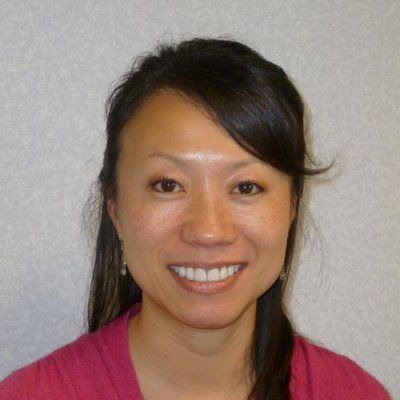 |
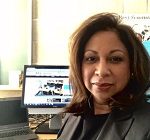 |
|
Read the interview with Sharon Tao about this sub-theme |
|
Read the interview with Nalini Boodhoo about this sub-theme |
This sub-theme is co-convened by:
Rebecca Hughes, The British Council
Bronwen Magrath, IEFG/University of Nottingham
The post-2015 lifelong learning agenda requires a renewed focus on the knowledge, attitudes and skills adults and youth require to build sustainable futures. Learning in education settings and workplaces must move beyond a narrow focus on employability to encompass broader ideas of decent work and adaptive strategies for sustainable livelihoods, including through the promotion of ‘green jobs’; adult education must move beyond a narrow focus on literacy to include citizenship and to advance personal and societal well-being.
At the same time, we recognise that the way we understand ‘well-being’ and ‘livelihoods’ is very dependent on context. We are interested in encouraging proposals that can help us understand how education policy and planning can better respond to the specificity of these contexts and communities’ needs, and how youth and adults can play a more active role in defining and shaping learning and curricular agendas. We encourage proposals that explore the theme of equitable youth and adult education in settings characterised by crisis, conflict and displacement – this is both because education is likely to be disrupted in these settings, and because education can help mitigate crises by equipping youth and adults with the knowledge, capabilities and resilience they require to thrive in adverse contexts.
We are interested in proposals that explore both the broad policy and curriculum reshaping needed to support lifelong learning for sustainable futures, as well as case studies of how these policies are implemented/enacted in communities and education settings. We particularly welcome proposals that explore the interplay between policy and practice. Proposals that focus on school and higher education contexts, lifelong learning, workplace settings, and sites of non-formal and informal learning would all be welcomed.
Proposals should seek to respond to one of the following questions:
- What are the valued capabilities for all youth and adults within the sustainable development agenda? What inputs and interventions are needed to realise these capabilities?
- What role do different stakeholders – and particularly employers and businesses – play in defining and driving a learning agenda for skills and capabilities?
- What role can/should adult education (understood broadly) play in promoting and linking environmental, social and political sustainability? In encouraging active and engaged citizenry? In combatting inequity and marginalisation, particularly within conflict-affected and displaced communities?
- How can policies around youth, adult, and lifelong learning balance between individual and societal needs? How can these policies respond to the need for decent work and personal well-being as well as to international commitments on sustainable production and consumption?
- What case studies can researchers and planners draw on for guidance?
Bronwen and Rebecca have given an interview on their aspirations for the sub-theme.
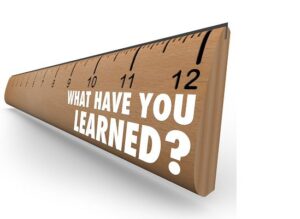 This sub-theme is co-convened by:
This sub-theme is co-convened by:
Aaron Benevot, GEMR/UNESCO
Rhiannon Moore, Young Lives, University of Oxford
Measures of student learning, based on the growing number of international, regional and national assessments, are now a central part of educational monitoring, as policy priorities have shifted from a focus on universal access to education to one based on access and learning.
Understanding the quality of teaching – and its impact on learning – are crucial for sustainable development. Current measures focus mainly on proficiencies in foundational skills, such as literacy and numeracy, and whilst attention is sometimes devoted to other subjects, this is notably less frequent. Yet in our fast-changing and unpredictable world, characterised by pronounced economic, political and environmental challenges, other areas of teaching and learning also need consideration.
In assessing teaching and learning for sustainable development, many questions emerge. We welcome papers from practitioners and researchers addressing the following (or related) questions, and in which different methodologies are employed as deemed appropriate:
- What metrics are best employed to capture competencies such as problem-solving, interpersonal communication, critical thinking and creativity, which are considered vital for sustainable development? Can (and should) learning assessments assess knowledge and skills acquired through extracurricular or informal activities, alongside those taught in the classroom? Should assessment seek to measure the learning of values and attitudes?
- How do we create rigorous assessments that are comparable across diverse contexts, and recognise diversity in learners? How do we strike the right balance between concept validity, cross-country comparability and local precision in international and regional assessments? What role does the growth of citizen-led assessment have to play in this regard?
- What role does language play in assessment practices? How does mother tongue proficiency and language of instruction influence learning for sustainability?
- In what ways have existing assessment data shifted understandings of equity, equality, social justice and relative deprivation? What are the shortcomings and unintended consequences of current assessment practices? How do assessments themselves shape what is taught and learned? And how might alternative strategies be employed to understand learning in less conventional subject and skill domains?
- How can we judge if teachers have the appropriate pedagogical skills to help prepare students to find solutions to tomorrow’s sustainability challenges? How can teachers be supported to assess learners, and to use assessment data to improve how they teach and what students learn? How does existing assessment data frame how teachers are perceived and held accountable by others?
- What criteria can be employed to assess the knowledge and skills acquired by adult learners, those who have left or never been to school, or those living in conflict zones? Current assessments are disproportionately school-based, and ignore learning for sustainability occurring outside of formal schooling. How can learning be assessed innovatively to focus on the needs of all learners, both in and out of the classroom?
- Do assessments exacerbate the education challenges faced by refugee and mobile populations? Should forcibly displaced children and youth be expected to pass host country exams rather than those of their home country, given the uncertain recognition of qualifications acquired upon repatriation?
 Read the interview with Rhiannon Moore on this sub-theme
Read the interview with Rhiannon Moore on this sub-theme
This sub-theme is co-convened by:
Susy Ndaruhutse, Education and Development Trust
Amy Parker, Relief International
Globally, 263 million children and young people between the ages of 6 and 17 are currently out of school. It is estimated that 15 million girls of primary school age will never enrol in primary school, compared to approximately 10 million boys. The problem goes beyond access. For those children who are in school, many are not learning. In low- and middle-income countries, only half of primary-school aged children and little more than a quarter of secondary-school aged children are learning basic primary- and secondary-level skills. These inequalities persist into adulthood. The most recent UIS data show that two thirds of the 758 million illiterate adults are women. These inequalities are mirrored in other marginalised groups – for example, children with disabilities in most low- and middle income countries are ten times less likely to attend school than non-disabled peers and are more likely to drop out than any other group of children.
The increasing inequalities in education outcomes and cycles of marginalisation are mutually reinforcing. This theme will take a systemic look at equity in teaching and learning and how to disrupt such cycles of exclusion and marginalisation, whether by poverty, location, gender, linguistic/ethnic minority, disability, conflict or the intersection and overlapping of several of these aspects. We welcome papers that develop and discuss a conceptual or theoretical framework, as well as more applied ones that reflect on the evidence base and implications for policymakers. We expect papers to address questions such as:
- Why is inclusive education important for sustainable development?
- What are the main barriers to equitable teaching and learning and how can they be overcome?
- Which education systems have been most successful in providing inclusive education and what can other countries learn from them?
- What are the most effective ways of providing more equitable teaching and learning and what can we learn from those that have not worked?
- How can targeted interventions for specific marginalised groups be systematised and integrated into national policy, plans and strategies so that they become mainstream and sustainable?
- What role can the non-formal sector and alternative delivery models play in providing sustainable solutions that have formal recognition and equivalency?
- How can the voices of marginalised learners (and parents) be effectively included in policy discussions and decisions about approaches to teaching and learning?
- What strategies developed with/for marginalised learners also offer promising means of engaging mainstream learners?
- What examples are there of costing inclusion? Are there examples of effective low-cost solutions to inclusion?
- What place do innovation and technology have in providing alternative approaches to learning, especially for refugees and internally displaced persons?

Read the interview with Amy Parker on this sub-theme

Read the interview with Susy Ndaruhutse on this sub-theme

